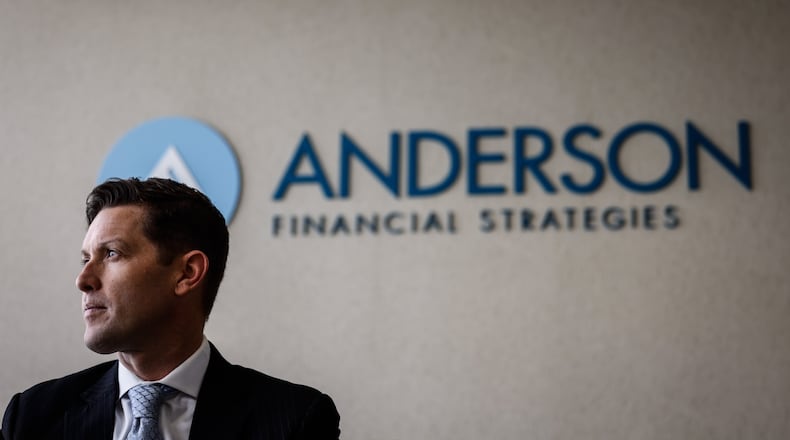“It’s certainly not,” said Shon Anderson, president and chief wealth strategist at Anderson Financial Strategies in Dayton. “It’s just the transition point.”
Planning for retirement many years in advance can smooth that transition and help retirees accomplish their goals.
“If you don’t take the time to perform an annual retirement check-up when you’re at least within 10 years of retirement, you’re in for a surprise,” he said.
One step future retirees should take is examining their retirement allocations. A decade before the expected retirement, funds should be in a moderate portfolio, Anderson said. He recommends about 45 percent exposure to stocks, 35 percent in fixed income and 20 percent in alternatives, such as real estate and commodity-managed futures.
That portfolio should change to moderately conservative about five years before retirement, and it should be modified to completely conservative even later, he said.
“One of the biggest mistakes is people get too conservative too soon,” he said. That stalls financial growth and means even more savings will be needed before retirement.
Credit: JIM NOELKER
Credit: JIM NOELKER
Michael Bridges is a client of Anderson Financial Strategies, both personally and as founder, primary owner and former president of Peerless Technologies.
Bridges, 62, envisioned retirement as a time when he could do what he wanted, not just what he needed to do. AFS and Anderson helped him to get to that stage sooner than he may have been able to otherwise.
“He is able to utilize and leverage a lot of tools and strategies that I didn’t even know existed,” said Bridges, of Beavercreek.
At Peerless, 92 percent of employees participate in the 401(k) program managed by AFS, which offers to meet with employees throughout the year to help them with their retirement strategies.
“I want (the employees) to receive a robust return on their hard-earned money in their 401(k) so they have the freedom to plan their retirements as they see fit for themselves and their families,” Bridges said.
AFS also introduced Bridges to retirement investments besides traditional 401(k) plans that he wasn’t aware of and helped to maximize his estate plans.
Attorney Nancy Roberson said the best way to prepare for retirement is to have a collaborative meeting with professionals such as an estate planning lawyer, financial adviser and accountant to create a strategy for the future.
No matter their age or proximity to retirement, everyone should have appropriate estate planning documents like a will and current power of attorney and health care directives, she said. It is also important to consult a lawyer and not simply download online forms.
“People don’t know what they don’t know,” said Roberson, a specialist in estate planning, trust and probate law who founded Roberson Law in Kettering.
Nursing home costs can obliterate savings and retirement plans, so long-term care insurance is important long before a diagnosis, she said. Life insurance policies that produce retirement income could be another strategy.
Other considerations may include umbrella insurance, protecting a business or providing for children with special needs. As clients accumulate wealth and move into their 40s, it also may be time to discuss estate tax planning.
After a retirement plan is in place, remember to regularly review it, Anderson said. This includes verifying that you are on-track with your savings and spending and that your goals remain the same.
Those who plan to retire before the age of 65 should consider additional health care costs, he said. More people are retiring earlier than expected, Anderson added, and moving the goalpost from 65 or 67 to 63 “has big implications.”
A retirement check-up also should include reviewing portfolio returns, inflation expectations and the tax implications of your retirement savings and investments, he said.
Annual retirement check-ups can give future retirees more confidence in their plan, Anderson said. An objective third party, such as a financial adviser, can provide honest advice and answers that will help accomplish the client’s goals.
“You may have the tools to calculate the numbers yourself, but there’s a lot of color behind the numbers that a professional can help you with,” Anderson said.
In addition to the financial considerations, Anderson said that it is vital for people to have social, mental and physical activities planned for their first year of retirement. Many people who return to work after retirement do so not because of their financial situation, but because they want the additional stimulation.
When should retirement and savings be on the radar? The sooner, the better, he said.
“Having a plan in place is the critical thing,” Anderson said. “It’s never too early to start planning.”
About the Author



